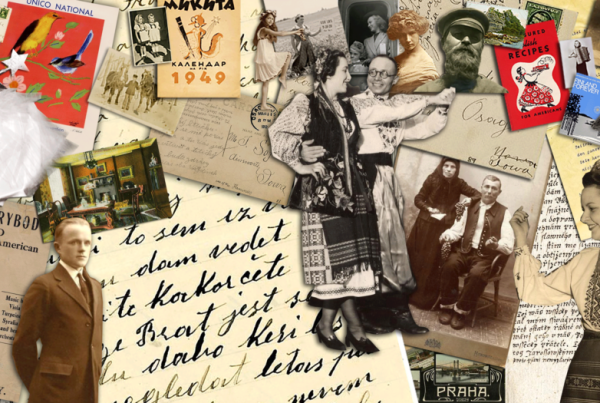By Kate Dietrick
Archivist, Nathan and Theresa Berman Upper Midwest Jewish Archives
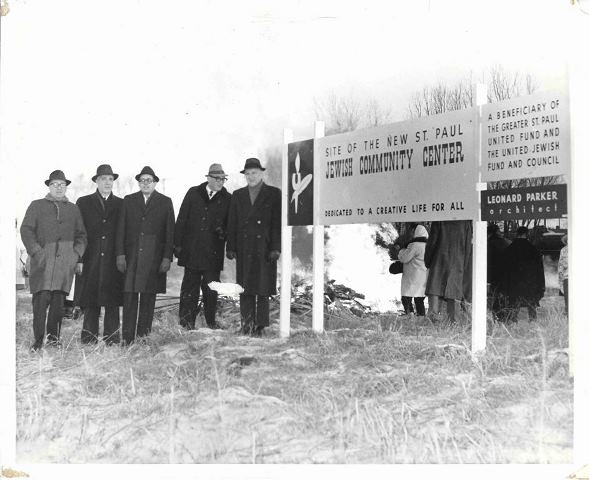
Groundbreaking for the new St. Paul Jewish Community Center building in Highland Park, 1963
May is Jewish American Heritage Month, a time set aside to recognize and celebrate Jewish American achievements and contributions to our country.
From the beginning of Minnesota’s establishment as a territory in 1849, there has been a steady presence of Jewish communities throughout the state. Although only around 2 percent of Minnesota’s population is currently Jewish, Jewish American’s contributions to local and national history have been remarkable. To celebrate Jewish American Heritage Month, here are a few highlights with examples from the Upper Midwest Jewish Archives.
Did you know that members of the local Jewish community …
… created the first non-sectarian hospital in the state that accepted members of minorities on its medical staff?
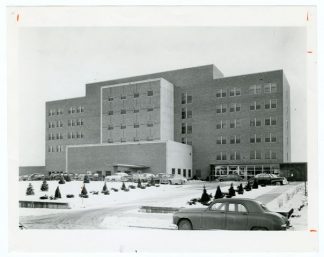
Mount Sinai Hospital, Minneapolis, Minnesota, circa 1950
Following a push from the Jewish community post-World War II for a hospital that admitted practicing Jewish doctors, Mount Sinai Hospital opened its doors in February 1951 under Chief of Staff Dr. Moses Barron. The hospital was located on Chicago Avenue at 22nd Street in Minneapolis.The seven-story, 197-bed facility was the most modern hospital in the community at the time. Its creation served two purposes: Jewish physicians who had been denied admitting privileges at other city hospitals could now practice medicine, and the founders garnered enormous civic prestige.
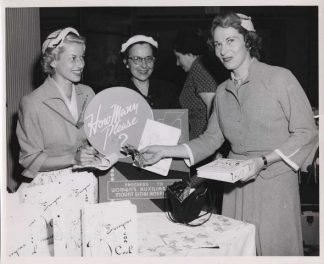
Volunteers from the Mount Sinai Hospital Women’s Auxiliary sell their cookbook at a fundraising event, circa 1955
It was the first private non-sectarian hospital in the community to welcome minority races to its medical staff, a great leap forward in the 1950s. A very active women’s auxiliary group provided support through volunteering, publicity, and extensive fundraising to aid the mission of Mount Sinai.
In 1990, the hospital merged with Metropolitan Medical Center to become Metropolitan-Mount Sinai; in 1991 they closed their doors. The auxiliary group, however, continues today as the Mount Sinai Community Foundation, providing grants to local nonprofits involved with health and well-being.
… routinely fought for our country?
In April 1917, the United States entered into the First World War, and so this year we mark the centennial commemoration. Over on the Upper Midwest Jewish Archives’ Facebook page, we spent April showcasing our collections relating to the Great War, including the Jack Pink papers, the Sidney Cohen papers, and the Frank and Arthur Eisenberg papers. Nearly half a million American Jewish men and women served in various branches of the United States armed services. We have numerous collections from men who served during World War II as well, both in Europe and the Pacific.
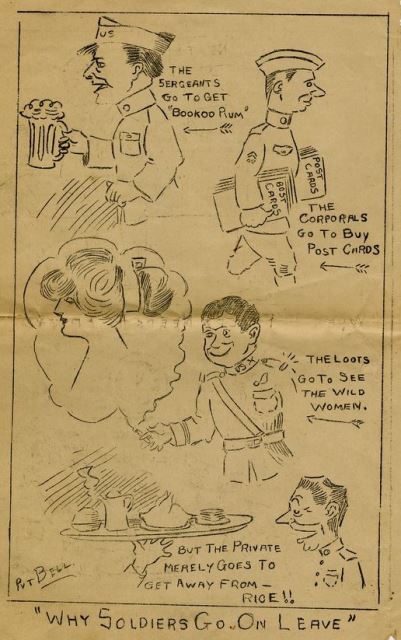
Page from Balloon Company Publications, March 1919, Frank and Arthur Eisenberg papers
Men of course were not the only ones who served their country. We have a collection put together by Molly Ehrlich Tyler who researched local Jewish women who served in the armed forces during World War II, including WAVES, WAC, WAAC, Women Marine Corps, Navy Nurse Corps, Army Nurse Corps, and the USAF. This collection is comprised of original documents and information about 74 female veterans of World War II from Minnesota and North Dakota.
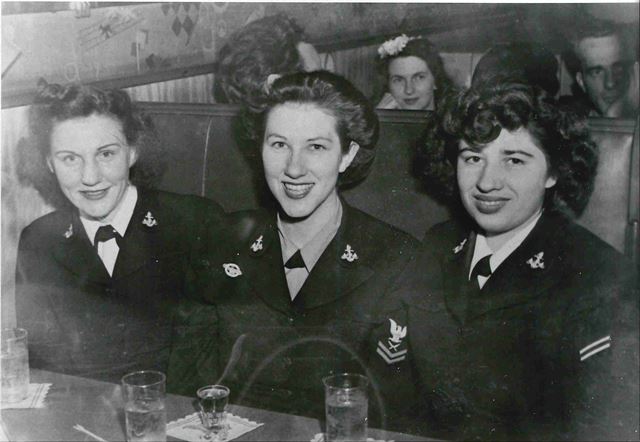
Phyllis Cohen (left) in Washington D.C., 1945
… broke barriers for the LGBT community?
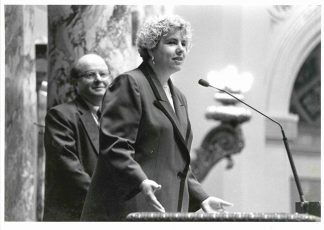
Rabbi Stacy Offner of Shir Tikvah Congregation, undated
When Stacy Offner took a position as the rabbi of the newly formed Shir Tikvah in Minneapolis in 1988, she became the first openly gay rabbi of a mainstream Jewish congregation.
Offner began her local career as Assistant and then Associate Rabbi at Mount Zion Temple in St. Paul from 1984 to 1987. However, in 1988, Rabbi Offner resigned amidst speculation regarding her sexual orientation. In the public downfall of allegations regarding discrimination, a group of congregants spoke out on behalf of Offner and subsequently left Mount Zion to form a new Reform congregation – Shir Tikvah – and Offner became their rabbi. During her time with Shir Tikvah, Offner was also an active spokesperson regarding women’s issues, medical ethics, and interfaith relations. She remained with the Shir Tikvah for nearly two decades, until 2008 when she was offered the role of Vice President to the Union for Reform Judaism, a position she held until 2010. She is currently the rabbi at Temple Beth Tikvah in Madison, Connecticut.
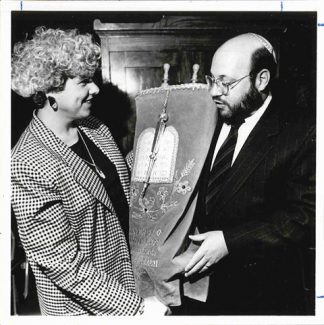
Stacy Offner with Morris Allen, receiving a Torah scroll, undated
Rabbi Offner’s career has been marked by many milestones including: Minnesota’s first female rabbi, the nation’s first openly lesbian rabbi, the Minnesota State senate’s first Jewish chaplain, and the first female vice president of the Union for Reform Judaism.
To learn more about Stacy Offner, view her papers in the Archives.
Throughout the month of May the Upper Midwest Jewish Archives will continue to celebrate Jewish American Heritage Month by sharing photos and stories on our Facebook page. Search for our page on Facebook or follow the link at z.umn.edu/umjafb.


